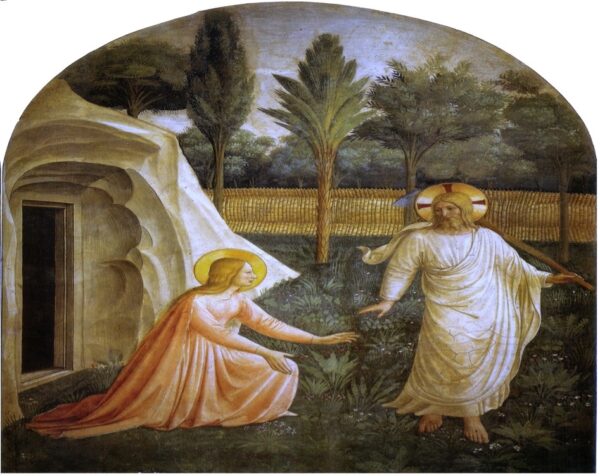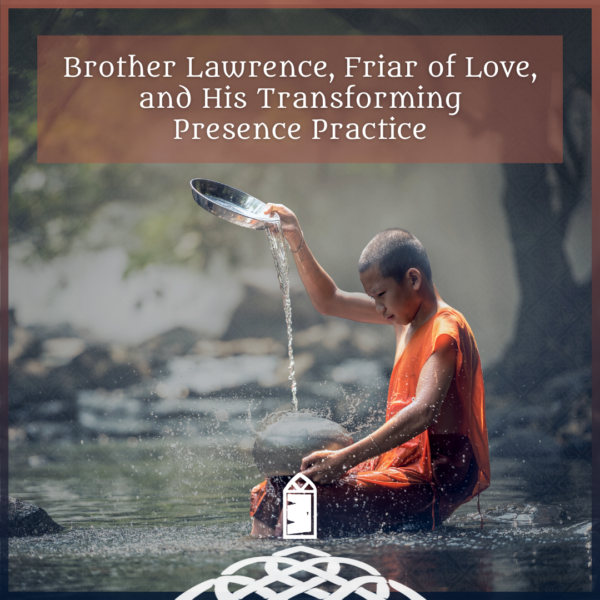I have come to recognize a deep despair that resides in the shadow part of myself, the shadow being of course those things about ourselves we don’t want to embrace. And yet the journey toward our own wholeness is precisely about naming our shadows, welcoming them into the inner rooms of our being, and listening for what they have to say to us.
Those of you who have been reading along here for a while know that I am engaging in some family systems work as a part of my spiritual journey. My father was someone who let despair consume him, his whole life he ran from his own darkness. In addition to whatever pain he experienced within his own family, his youth was layered against the backdrop of World War II, and the trauma and despair of that experience is something he never spoke of to me. I have found that resisting the despair only magnifies the weight of it.
In some ways, in saying these things, I feel like my paint is peeling, I am revealing the more difficult surfaces of my soul. I think part of my reluctance to share these struggles is my fear that others will try to step in to offer me hope as an antidote. I have an ambivalent relationship to the word “hope” — too often I think we use that term as a way of trying to circumvent the necessary process of facing our own dark emotions, we do violence to others by trying to move them to a place where we feel much more comfortable.
I am blessed with a spiritual director who does not ask me to cheer up or have hope. He asks me to walk right into the despair, to name the darkness and pain and suffering that weighs on me at times. He invites me to dwell there and imagine the pain my father struggled with so that I might cultivate more compassion and forgiveness for him.
I want to resist the despair, as many of us would. I sometimes spend a lot of energy doing precisely that. I don’t want to leap into the dark abyss where I must come to terms with the fact that this next moment could be my last, that those I love deeply will one day be gone, that we are waging a terrible war thousands of miles away whose trauma will ripple through generations to come, that we continue to wreak havoc on our planet and much of the damage is simply irreversible. When I contemplate the unimaginable horrors of the Holocaust I come to the conclusion that there is simply no consolation for that devastation. For some despair there simply is no tidy redemption offered in response, it simply is the horror that it is. Not that there weren’t stories of tremendous courage and love that rose from the ashes of that event, but the millions of crushed and broken bodies cannot be changed.
And yet, when I give myself space to walk right into that place of feeling utterly undone, of naming the things that give me reason for despair, I feel the crushing weight of sorrow and sometimes something quite remarkable happens. Sometimes when I am truly able to release my resistance to the places of darkness I am reminded of birdsong as Levertov writes, I come to treasure the simplest kindness, my heart begins to open in wonder at my own capacity for love.
These things do not outweigh the despair, as though the universe were some kind of cosmic scale. The despair and the beauty dwell together in the same space, not competing, but offering to us the full experience of soulfulness. Poetry and art help us to hold these in tension.
I come to realize that the opposite of despair for me is not hope, but precisely this experience of wonder. Wonder that there is anything at all, wonder that in the presence of great darkness there is also so much beauty, so much love.
As you read these words, I invite you to notice what stirs in you. Do you want to rush and reassure me that everything will indeed be alright? Do you want to say that the beauty of the world really does outweigh the darkness in some sort of ultimate battle?
Or can you rest here in this space with me, holding the profound paradox of the world as best as you can. Can you join me in making room within you for the full spectrum of the emotional landscape we contain within us, responding to the call to be fully present to this wondrous and despairing moment?
(photos: above taken over the Hood Canal, below taken at a sheep farm in Arlington, WA)
-Christine Valters Paintner @ Abbey of the Arts.






24 Responses
the photo of the paint peeling did it for me. a good and strong metaphor.
like old paint that doesn’t peel off entirely, sometimes we need someone to help us scrape off the old stubborn layers of despair, self-criticism, sadness, and anger. i don’t know anyone who can do it by themselves.
may we all encourage and inspire each other.
thank you, christine.
More thoughtful comments . . .
blisschick, I really appreciate your insight into the despair and the element of choice and courage. I think we fundamentally disagree though in at least one place, I don’t believe that the presence of hope negates despair, I believe we are called to be able to hold the possibility of both existing together. The spiritual journey for me goes to the heart of paradox and dwells with that tension, it is a movement beyond the either/or.
Carolyn, thanks for joining me. I adore the Levertov poem you posted. And yes, I think one of the greatest gifts we can offer to another is being fully present and offering a safe container to face the full spectrum of who we are.
So much resonance for me in this post…..the landscape you describe is familiar…count me among those who will rest with you.
I am grateful for your verbal offering of one of the great strengths of spiritual direction, that invitation to be where you are…to stay, to feel what is…and to not be alone.
‘There is no savor more sweet, more salt,
Than to be what, woman, and who, myself, I am.
If I bear burdens, they begin to be remembered as gifts, goods.
A basket of bread that hurts my shoulders, but closes me in fragance.
I can eat as I go!’
-Denise Levertov
I agree that too often we want to push people through the hard stuff too quickly for them to truly learn and assimilate the learning into their hearts and lives. But I believe just as strongly that despair is momentary. It is, literally, a moment of choice. A moment that passes because the choice is between living and dying — despair being the utter loss of hope (and therefore not the same as intense grief or anger). You are not in that place just by virtue of your willingness to look into the depths of darkness and not look away, by virtue of the fact that you insist on not rushing through the work of it, by virtue of your most obvious courage. And perhaps that is a new way to think of hope: action married to courage in the face of adversity. Never ceasing. Always trying, over and over, believing this next time will be THE time.
Thanks for these very thoughtful comments offered here, I am grateful to those of you willing to at least take my invitation seriously for a few moments.
Tess, I fully agree with your insight about not holding onto the emotion after it’s gone, that is a different relationship to emotion that is not very helpful. I am going to write more about this for Wednesday. Thanks for the beautiful image too.
Tina, I don’t have any easy answers to this but I greatly appreciate pondering this alongside you. I think lament is some of the most powerful prayer we have to offer. And I would suggest that art is one way of expressing this.
HM, thanks for resting here with me. I would agree with you, that I am fundamentally a person of deep hope, but I am re-thinking what that word means. I see hope used so often to silence people who are suffering. I think there is a cheap kind of hope, bought without any kind of real wrestling, but then there is another kind that only comes through being present to the abyss.
kigen, thanks for the Psalm, I find the Psalms one of the wisest places of learning how to be with darkness. I believe fully that God rests in the despair with me as well.
Rebecca, I understand the longing to comfort. Although when I was grieving the death of my mother one of the lines from the Hebrew Scriptures that spoke most deeply to me was about Rachel who had lost her children and would not be consoled. I loved that it spoke to the kind of grief that cannot be easily managed or soothed. I actually don’t think the despair is a small corner, I think it is in some ways equal measure to the light. But I agree that the whole of it needs to be embraced, to lived into.
It is our nature, especially as women, to want to ‘fix’, to want to comfort, and to heal. But we can’t always do that for those closest to us, let alone someone from afar. I find myself thinking as I read this – don’t spend so much time in the dark that you forget to see the light, and I say that because I know someone who did just that – spent so much time reflecting on, examining, seeing only the dark that they got to the point they could no longer see the light. And the world is made up of both – light and dark, good and evil, sadness and joy, the age old yin and yang. Look into Tao and Buddhism, there is some wisdom to be found in a different perspective. It is not so much resisting despair as it is paying attention to the wonder, to use your words. The despair does not disappear, it just resides in its own small corner of the total whole. Begin to notice the rest of the whole, and dwell more often in the larger whole and not some small corner. And you’re right – there is healing in art, in the expression and letting go of what we feel, ah yes, feeling deeply and letting go.
Christine,
I was taught this famous Psalm as a child, and it walked with me, and carried me through some dark times growing up. I have not so often turned to it as an adult, but saying it over to myself this morning, after reading your post, it seemed again, as it always was,
the safest and gentlest of harbors:
Psalm 23
The LORD is my shepherd; I shall not want.
He maketh me to lie down in green pastures:
He leadeth me beside the still waters.
He restoreth my soul:
He leadeth me in the paths of righteousness
For his name’s sake.
Yea, though I walk through the valley
Of the shadow of death,
I will fear no evil:
For thou art with me;
Thy rod and thy staff they comfort me.
Thou preparest a table before me
In the presence of mine enemies:
Thou anointest my head with oil;
My cup runneth over.
Surely goodness and mercy shall follow me
All the days of my life:
And I will dwell in the house of the LORD forever.
—
Chrsitine,
I will rest in this space with you.
I think what you write here is important, and even as I am typing this, I stretch to wrap myself around it, embrace it. I don’t know that I quite can yet. As a person sometimes given to despair–I confess that–my impulse is to want to banish it forever. Something draws me to people of resilient, persistent, indefatigable hope. In the little I have known of you, both here on your blog and in person, I see you as a person who is fundamentally a person of hope….
So I guess what I am saying–this becomes clear to me only as I type this–is that I want to say NO to what you write here. That is my first impulse. Perhaps because in my own life I want to find a way to banish the abyss that would consume me…. I have yet to learn, as apparently you are learning, to “walk right into” it with trust that I will emerge whole….
Thank you for this. I need to ponder your word here more. And I need to, as I started out to say in the beginning, rest in this space with you.
I do not wish to fix or offer platitudes of fluffly betterness.
I work and live in trenches where there is little hope and much despair. Reality has been merciless in the minds of the folks I walk with.
I have been thinking much about how little hope they have. I struggled with how to help the find any. To leave them in their pain seems cruel and to push them deeper? This is a far greater paradox than I had considered.
I will have to ponder this more.
You invited us to notice what stirs when reading those words. About half way through I got a strong urge for avoidance activity – playing a computer game (yes, I confess, I do play them…) or something else.
You are absolutely right that the most comfortable is not the most important – we must learn to be with each other in pain and be with each other in joy, without trying to change either emotion. No ‘cheering up’ allowed, in exploration lies growth.
So long as (and I think this is also important) one is not ‘hanging on’ to the emotion after it has actually gone. I know I sometimes do that with anger – hang onto it because it energises me – but there comes a point when I have to laugh at myself and let it go, because in fact it has already gone.
Your comment about poetry and art reminded me vividly of a passage in a book of Elizabeth Goudge that I cannot lay my hands on at the moment for the exact quote. It told of a little boy whose father had died, who found comfort lying on the dusty attic floor studying the pattern of moonlight streaming through a window. The moonlight was held and arranged in squares by the leaded window glass – beauty held in tension by shape.